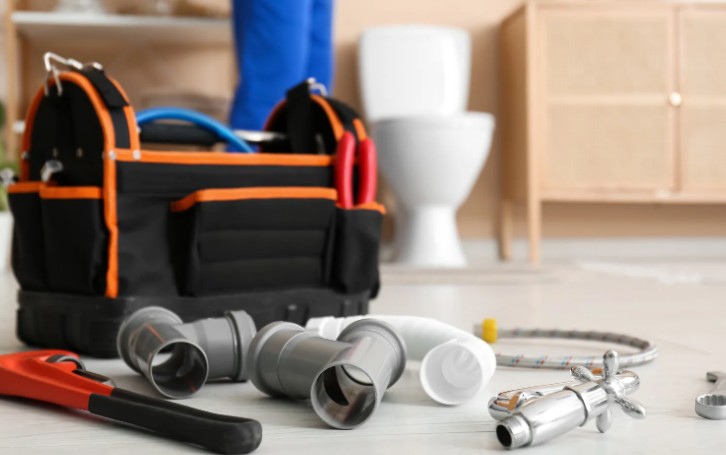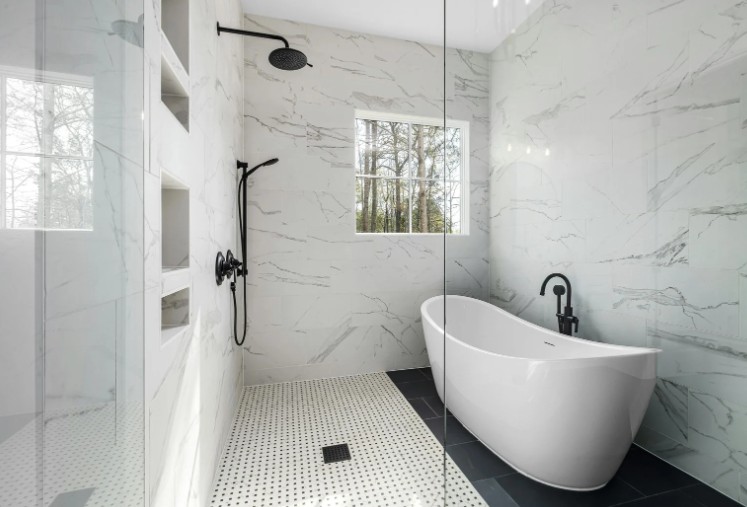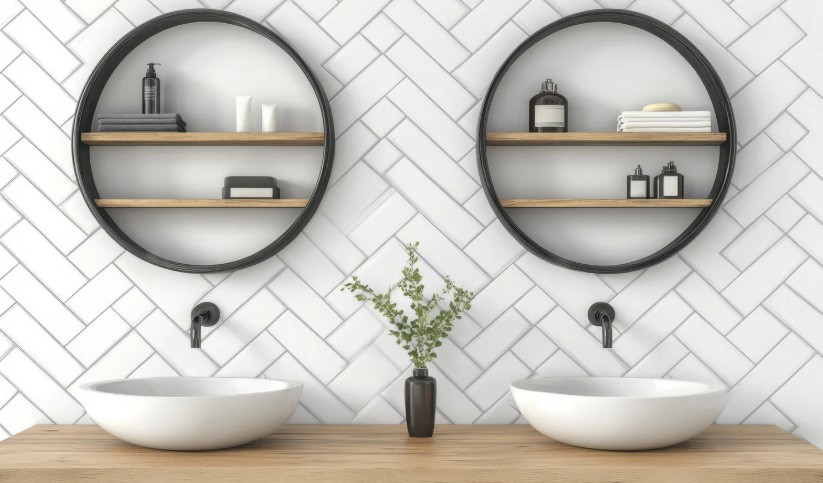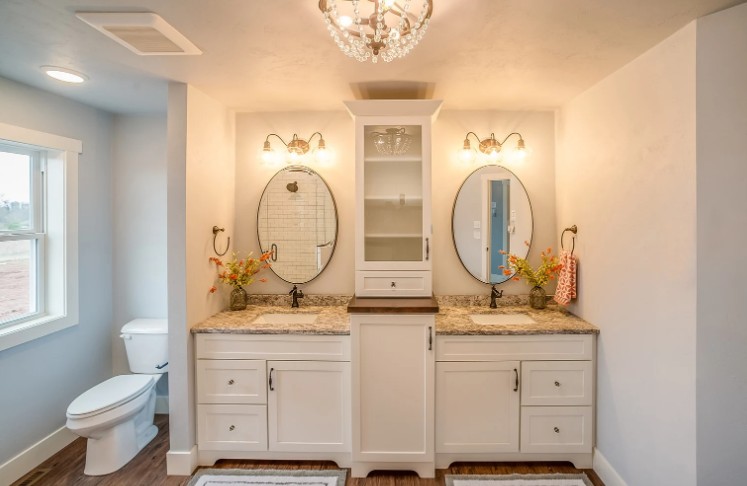- What Influences the Cost of a New Bathroom in the UK?
- How Much Does a New Bathroom Cost on Average?
- DIY vs Professional Installation – Which Is Better for Your Budget?
- What Hidden Costs Should I Watch Out For?
- How Can I Budget Effectively for a New Bathroom?
- Final Thoughts – What Should I Expect to Pay?
- What Are the FAQs About How Much Does a New Bathroom Cost in the UK?
Thinking of renovating a bathroom may be exciting and daunting together. As a homeowner in the UK, I’ve found that one of the most common and confusing questions is: how much does a new bathroom cost?
The truth is, it depends on several factors – from your bathroom’s size and layout to the materials you choose and whether you hire a professional or go DIY.
In this guide, I’ll walk you through everything I learned about budgeting for a new bathroom, backed by practical insights, price ranges, and real considerations so you can plan smartly and avoid surprises.
What Influences the Cost of a New Bathroom in the UK?
When I started planning my bathroom renovation, I quickly realised the total cost wasn’t just about picking a new bath or tiles. There are multiple components at play.
Is Bathroom Size a Major Factor?
Yes, it absolutely is. The larger your bathroom, the more materials you’ll need, and the longer it will take to fit everything. From what I’ve researched and experienced:
- Small bathrooms (2–4m²): approx. £3,000–£5,000
- Medium bathrooms (5–7m²): approx. £5,000–£8,000
- Large bathrooms (8m²+): £8,000–£15,000+
The average bathroom renovation cost in the UK tends to fall between £6,000 and £8,000.
How Does the Layout or Plumbing Affect Price?
This was one of the trickiest parts of my renovation. If you’re keeping your layout the same, you’ll likely save a lot. But moving the toilet or shower means relocating plumbing, which increases labour and time.
- Basic plumbing tweaks: £300–£600
- Full plumbing reconfiguration: £1,000–£2,500+
Labour charges for bathroom fitters also vary across the UK, averaging £150–£250 per day.

What About Fixtures, Fittings, and Materials?
The fixtures you choose massively influence cost. Here’s a quick comparison:
| Item | Budget Range | Mid-Range | Luxury |
| Toilet | £50–£100 | £150–£300 | £500+ |
| Basin & Vanity | £70–£150 | £200–£400 | £600+ |
| Shower Cubicle | £200–£400 | £500–£800 | £1,200+ |
| Tiling (per m²) | £15–£25 | £30–£60 | £80+ |
I opted for mid-range bathroom suites, which struck a good balance between style and cost.
How Much Does a New Bathroom Cost on Average?
How much should I budget for a new bathroom?
| Bathroom Type | Estimated Cost Range |
| Basic (budget suite, minimal work) | £3,000 – £5,000 |
| Standard (mid-range products) | £5,000 – £8,000 |
| Premium (luxury fixtures, full rework) | £8,000 – £15,000+ |
This complete bathroom cost breakdown will help you see where your project might sit based on your goals.
Are There Regional Differences in Cost?
Yes. I live just outside London, and I noticed quotes were higher than friends got up north. Here’s a general guideline:
- London & South East: +10% to +20% premium
- Midlands & North: More affordable labour and fittings
- Scotland/Wales: Prices vary, but can be slightly lower than UK average
UK bathroom fitting prices are often influenced by location more than anything else.
DIY vs Professional Installation – Which Is Better for Your Budget?

Can I Save Money Doing It Myself?
If you’re handy, you can save on tasks like painting, tiling or even installing a vanity. Here’s what I found doable on my own:
- Painting and wallpapering
- Installing shelves or mirrors
- Basic tiling (if you’re confident)
But I left plumbing and electrics to the pros – it’s just safer and ensures compliance.
What Do Professionals Charge?
Hiring skilled tradespeople means a smoother experience but comes at a cost. Here’s an example of labour costs for bathroom fitters in the UK:
| Trade | Daily Rate | Project Estimate (7–10 days) |
| General Bathroom Fitter | £180–£250 | £1,500–£2,500 |
| Plumber | £200–£300 | £800–£1,500 |
| Electrician | £180–£250 | £500–£900 |
| Tiler | £150–£200 | £300–£800 |
Even though hiring a team cost me more upfront, it saved time and stress in the long run.
What Hidden Costs Should I Watch Out For?
Are There Unexpected Fees in Bathroom Renovations?
Absolutely. I was caught off guard by a few! Here are some hidden costs to budget for:
- Waste removal: £100–£300
- Waterproofing: £200–£500
- Floor levelling or structural work: £300–£1,000
- Electrical upgrades (e.g., extractor fans): £150–£400
- Permit or compliance checks (for listed buildings or flats): varies
These hidden bathroom renovation costs can easily add 10–20% to your total.
How Can I Budget Effectively for a New Bathroom?
What Are Some Practical Money-Saving Tips?
From my experience, here are some great ways to stay on budget:
- Keep your existing layout to avoid costly plumbing changes
- Mix DIY with professional work to cut labour costs
- Buy mid-range fixtures that balance quality and value
- Use wall panels instead of tiles for quicker and cheaper installation
- Shop during sales or clearance events for big savings on bathroom suites
- Get multiple quotes from fitters – prices vary more than you’d think
Budgeting isn’t just about cutting corners – it’s about making smart choices that match your needs.

Final Thoughts – What Should I Expect to Pay?
So, how much does a new bathroom cost? After going through it myself, I can say the average is £6,000–£8,000, but that varies based on your design, materials, and whether you go DIY or hire pros.
Whether you’re working with a tight budget or planning a full luxury upgrade, being informed helps you avoid hidden fees and make confident decisions. I hope this guide gives you the clarity you need to move forward with your renovation plans.
If you need help with anything else – like bathroom design tips, or how to choose fixtures, I’d be happy to help with another guide!
What Are the FAQs About How Much Does a New Bathroom Cost in the UK?
1. What’s the Cheapest Way to Redo a Bathroom in the UK?
Stick to your existing layout, do minor updates (like taps and lights), and use budget suites. You can update the look for under £2,000–£3,000 this way.
2. How Long Does It Take to Renovate a Bathroom?
Usually 7–10 working days, depending on complexity and whether you’re moving plumbing.
3. Can I Get Finance for a New Bathroom?
Yes. Many companies offer bathroom finance plans or 0% instalment schemes. Always compare interest rates and read the fine print.


0 Comments